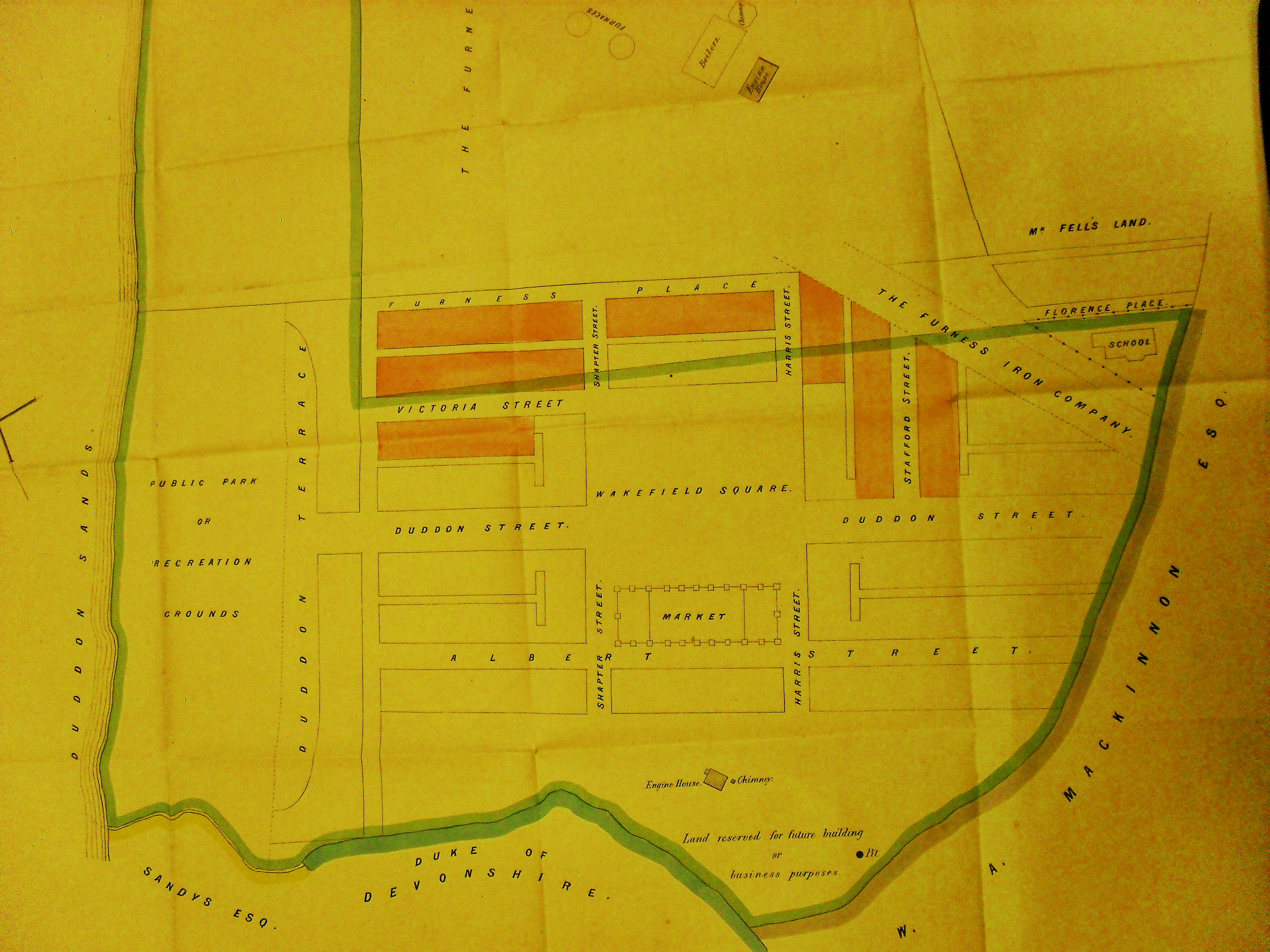Edward Thomas Wakefield on:
[Wikipedia]
[Google]
[Amazon]
Edward Thomas Wakefield (1821–1896) was a British barrister, and landowner in Ireland.
 In 1865 E. T. Wakefield bought Chapman's Lot, Askam near Barrow-in-Furness, Lancashire, from Thomas Sharpe. The intention was to build an ironworks for the Furness Iron and Steel Co, in which he was a partner, and also a housing estate on his own account. There was an iron mine working here on a lease from the Duke of Buccleuch. When the inevitable subsidence became apparent, Wakefield sought to establish:
*a, that the duke was not entitled to ore under his land and
*b, that the duke was not entitled to cause surface damage on his land.
Wakefield won his case in 1867 but the verdict was overturned in the House of Lords in 1870.
In 1865 E. T. Wakefield bought Chapman's Lot, Askam near Barrow-in-Furness, Lancashire, from Thomas Sharpe. The intention was to build an ironworks for the Furness Iron and Steel Co, in which he was a partner, and also a housing estate on his own account. There was an iron mine working here on a lease from the Duke of Buccleuch. When the inevitable subsidence became apparent, Wakefield sought to establish:
*a, that the duke was not entitled to ore under his land and
*b, that the duke was not entitled to cause surface damage on his land.
Wakefield won his case in 1867 but the verdict was overturned in the House of Lords in 1870.
Life
Wakefield was born inLeeson Street
__NOTOC__
Leeson Street (; ) is a thoroughfare near central Dublin, Ireland.
Location
The street is divided into two parts by the Grand Canal: Lower Leeson Street, in Dublin 2 is to the north of the canal, linking to St Stephen's Green, with ...
, Dublin in 1821. He obtained his B.A. from Trinity College, Dublin on 16 May 1846, and moved to London to practise as a barrister.
The first mention of estates in Ireland was on 12 June 1884 when he was in dispute with his tenants over peat rights. The tenants of his Lurgan estate described him as an absentee landlord. The estate included Portadown House.
Wakefield died at Margate
Margate is a seaside town on the north coast of Kent in south-east England. The town is estimated to be 1.5 miles long, north-east of Canterbury and includes Cliftonville, Garlinge, Palm Bay and Westbrook.
The town has been a significan ...
on 21 June 1896.
Wakefield v Buccleuch
Wife and children
On 7 October 1863, Wakefield married Florence Wharton at the British embassy in Munich.Other interests
In 1846 Wakefield presented a petition on behalf of the Aborigines' Protection Society and in 1856 became a trustee of the National Savings Bank. In 1857 he addressed theNational Association for the Promotion of Social Science
The National Association for the Promotion of Social Science (NAPSS), often known as the Social Science Association, was a British reformist group founded in 1857 by Lord Brougham. It pursued issues in public health, industrial relations, penal r ...
on the amendment of law on transfer of land, in September 1858 he addressed the Kendal Scientific Institute on "Poetry as a means of education considered principally in relation to the working classes" and in 1862 he addressed the Literary and Scientific Institute on "The American war, its causes and consequences".
In 1859 he became secretary for the Metropolitan Free Drinking Fountain Association and produced the design for their first fountain. His book on the subject is still in print.
In May 1862 he became a trustee of the National Association of British Miners.
He became a minister of the United Methodist Free Churches United Methodist Free Churches, sometimes called Free Methodists, was an English nonconformist community in the last half of the 19th century. It was formed in 1857 by the amalgamation of the Wesleyan Association (which had in 1836 largely absorbed ...
in August 1883 and was a member of the Primitive Methodist church society.Belfast News-Letter - Thursday 30 June 1892 via British Newspaper archives
References
{{DEFAULTSORT:Wakefield, Edward Thomas 1821 births 1896 deaths Alumni of Trinity College Dublin English ironmasters Irish barristers British landlords 19th-century English businesspeople